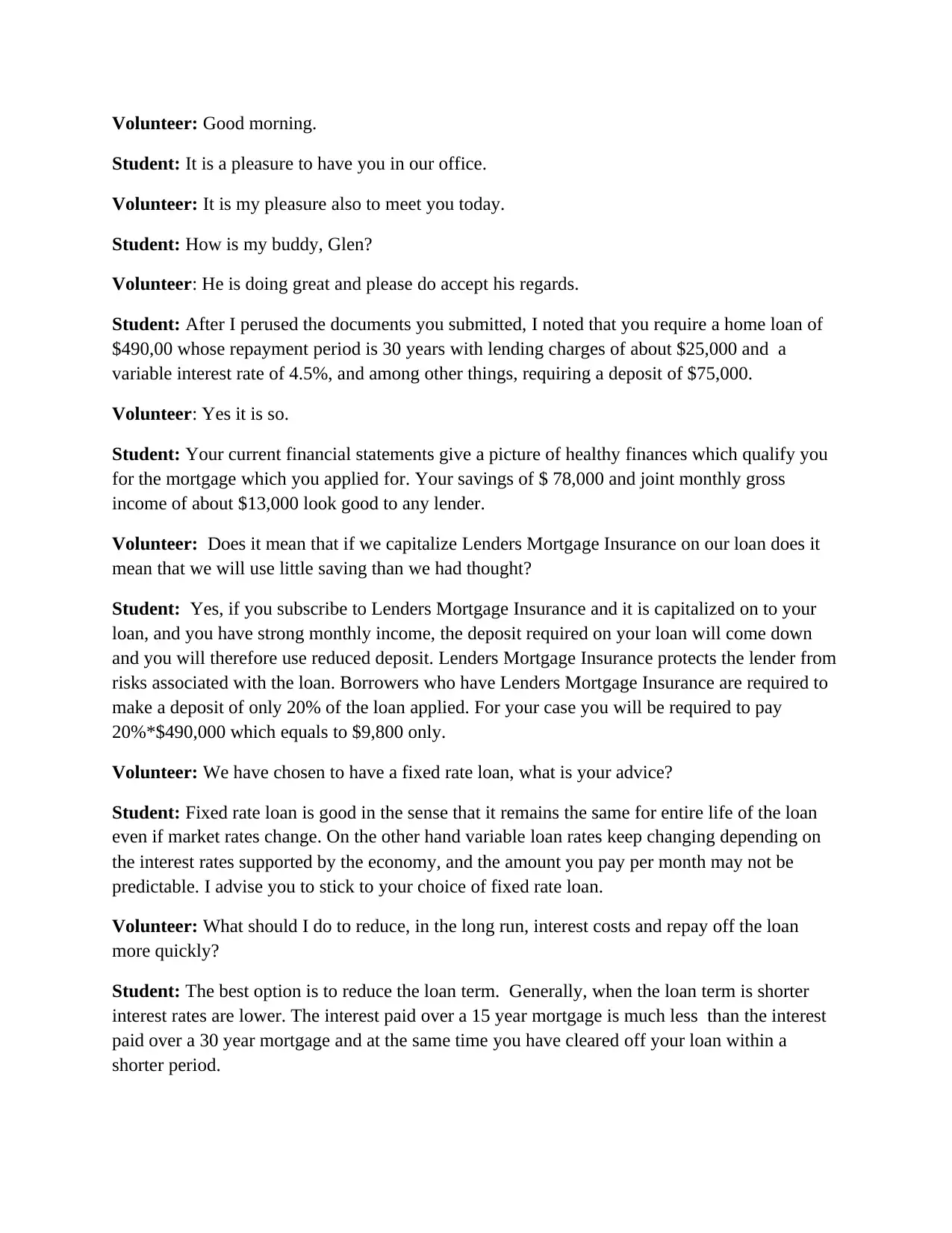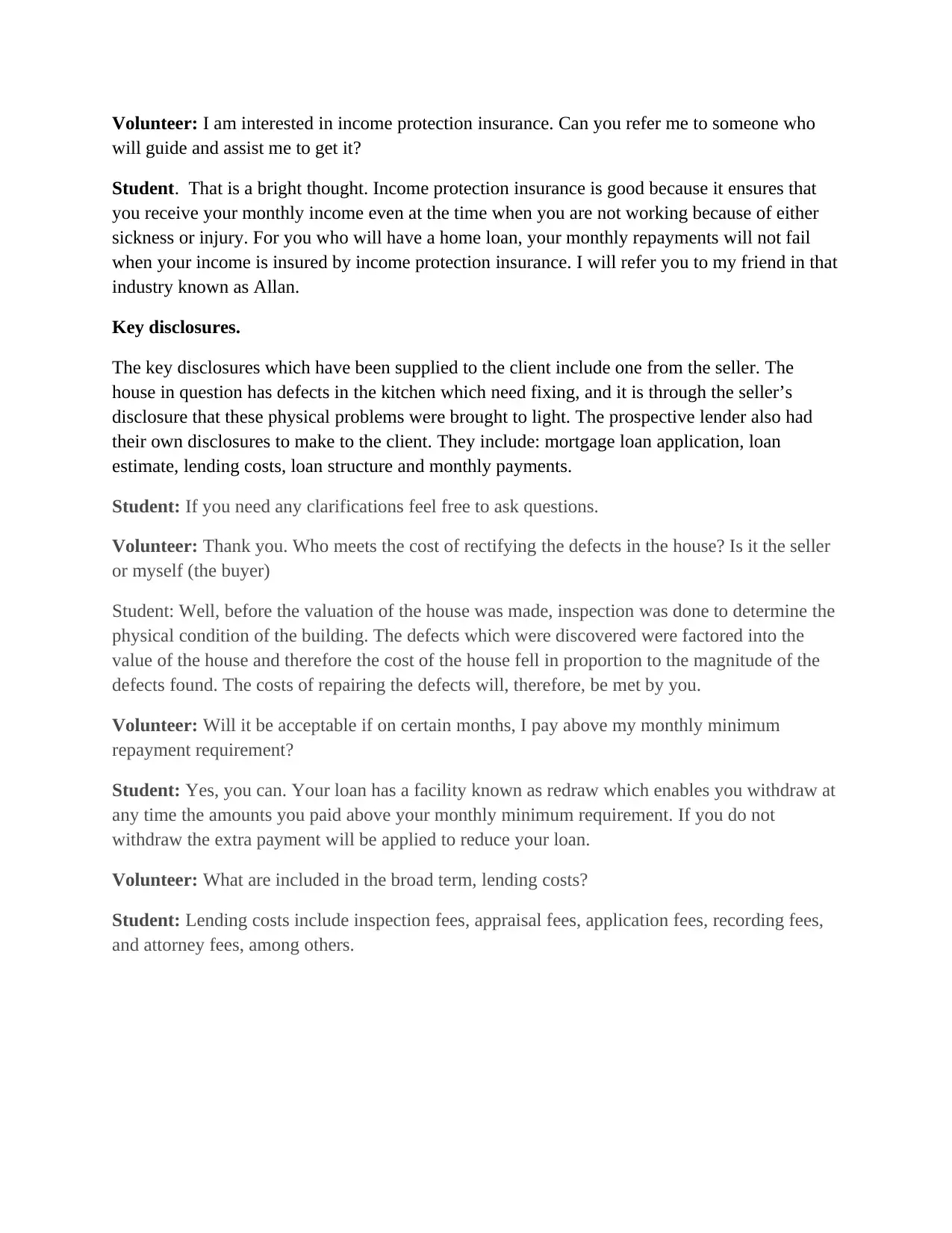Kaplan Certificate IV in Finance: Mortgage Broking Role Play Analysis
VerifiedAdded on 2022/10/13
|2
|860
|139
Practical Assignment
AI Summary
This document presents a transcript of a role-play scenario designed for a Certificate IV in Finance and Mortgage Broking student. The student, acting as a mortgage broker from ABC Mortgage Broking, engages in a simulated consultation with a client (the volunteer) regarding a home loan application. The conversation covers various aspects of the loan, including the loan amount, repayment period, interest rates (fixed vs. variable), and deposit requirements. The student explains the benefits of Lenders Mortgage Insurance (LMI), advises on fixed-rate loans, and discusses strategies for reducing interest costs. The role play also touches on income protection insurance and key disclosures related to the property. The student addresses the cost of rectifying defects in the house and clarifies the implications of making extra payments. Finally, the student explains the components of lending costs. The assignment assesses the student's ability to communicate financial concepts, provide advice, and handle client inquiries effectively.
1 out of 2








![[object Object]](/_next/static/media/star-bottom.7253800d.svg)